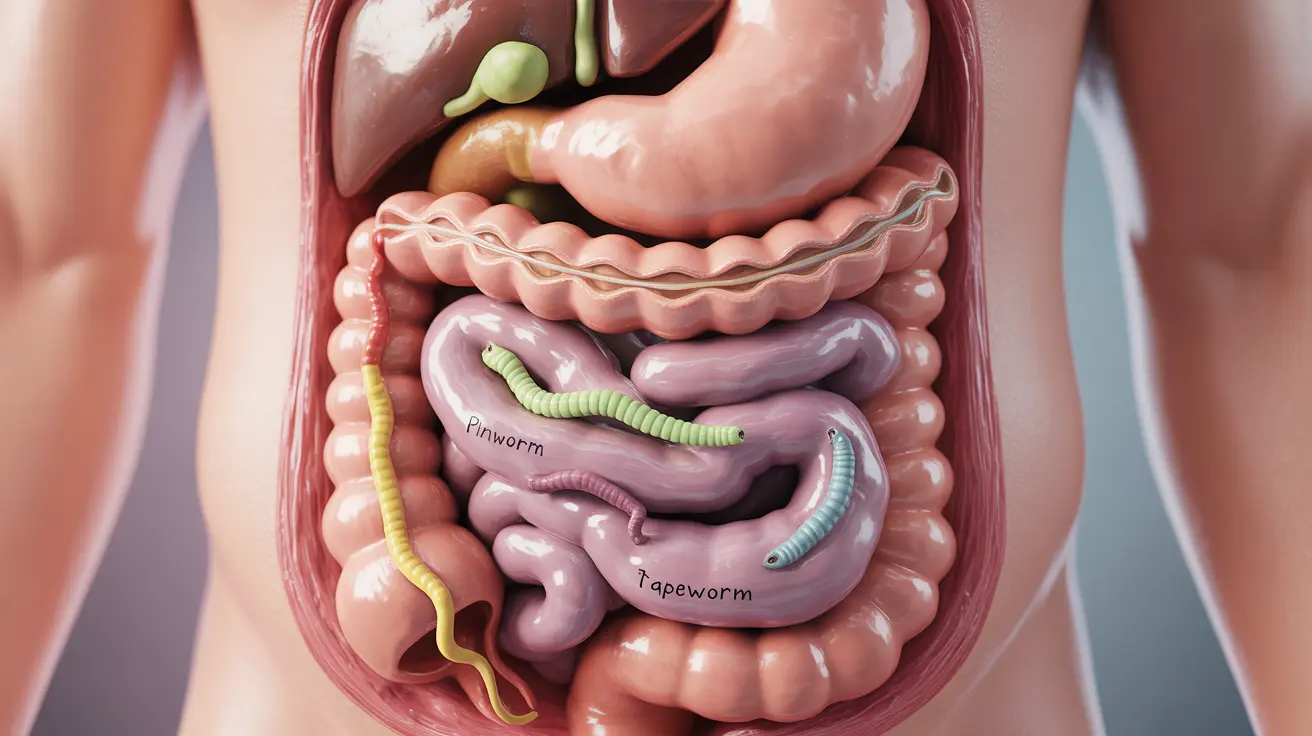Intestinal worm infections affect millions of people worldwide and can cause a range of health issues if left untreated. These parasitic infections, while common, are often misunderstood and can go undetected for extended periods. Understanding the signs, causes, and treatment options is crucial for maintaining good health and preventing complications.
This comprehensive guide will explore everything you need to know about worm infections in humans, including how to identify symptoms, prevent infection, and seek appropriate treatment.
Types of Common Intestinal Worms
Several types of parasitic worms can affect humans:
- Pinworms (Enterobius vermicularis)
- Roundworms (Ascaris lumbricoides)
- Tapeworms (Taenia species)
- Hookworms (Ancylostoma duodenale and Necator americanus)
- Whipworms (Trichuris trichiura)
Recognizing the Signs of Intestinal Worms
Intestinal worm infections can present various symptoms depending on the type of worm and severity of infection:
- Unexplained weight loss
- Abdominal pain and bloating
- Changes in bowel movements
- Fatigue and weakness
- Anal itching, especially at night
- Visible worms in stool
- Nausea and loss of appetite
Transmission and Risk Factors
Understanding how intestinal worms spread is crucial for prevention. Common transmission routes include:
- Consuming contaminated food or water
- Poor hand hygiene
- Walking barefoot on contaminated soil
- Close contact with infected individuals
- Consuming undercooked meat
- Poor sanitation practices
Diagnosis and Treatment Options
Healthcare providers typically diagnose worm infections through:
- Stool sample analysis
- Tape tests (particularly for pinworms)
- Blood tests to check for antibodies
- Physical examination and symptom evaluation
Treatment usually involves prescribed antiparasitic medications such as:
- Albendazole
- Mebendazole
- Praziquantel
- Pyrantel pamoate
Prevention Strategies
Preventing worm infections involves several key practices:
- Regular handwashing with soap and water
- Proper food handling and cooking
- Wearing shoes in potentially contaminated areas
- Regular cleaning of bedding and underwear
- Maintaining good personal hygiene
- Regular deworming for pets
Complications and Long-term Effects
If left untreated, intestinal worms can lead to serious health complications:
- Nutritional deficiencies
- Intestinal blockages
- Anemia
- Growth delays in children
- Chronic digestive issues
- Immune system problems
Frequently Asked Questions
What are the common symptoms that indicate I might have worms in my intestines?
Common symptoms include unexplained weight loss, abdominal pain, changes in bowel movements, fatigue, and anal itching. You might also notice visible worms in your stool or experience nausea and decreased appetite.
How do people typically get infected with intestinal worms and how can I prevent it?
People typically get infected through contaminated food or water, poor hygiene, walking barefoot on contaminated soil, or consuming undercooked meat. Prevention includes regular handwashing, proper food handling, wearing shoes outdoors, and maintaining good personal hygiene.
What treatments are available for worm infections in humans and how effective are they?
Antiparasitic medications like albendazole, mebendazole, and praziquantel are highly effective treatments. These medications typically clear the infection within a few days to weeks, depending on the type of worm and severity of infection.
Can worm infections cause complications like anemia or digestive blockages?
Yes, untreated worm infections can lead to serious complications including anemia, intestinal blockages, nutritional deficiencies, and chronic digestive problems. Some worms can also cause tissue damage and impact growth in children.
Why do pinworms cause intense itching around the anus, especially at night?
Pinworms cause anal itching because female worms emerge from the anus at night to lay eggs on the surrounding skin. This movement and the presence of eggs causes irritation and intense itching, particularly during nighttime hours.




